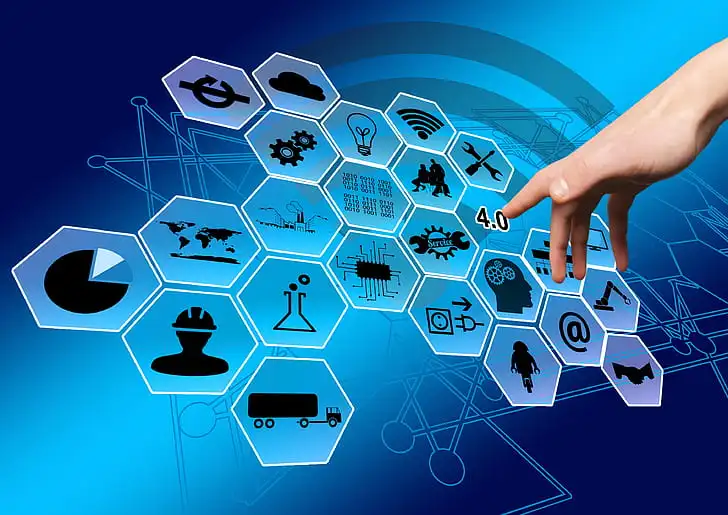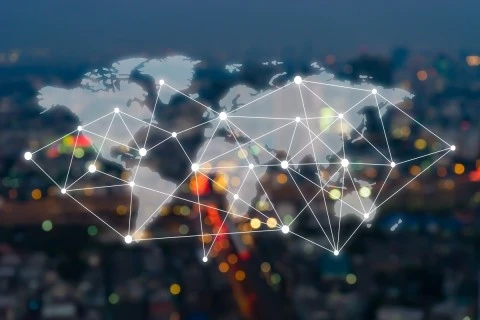The Internet of Things, or “IoT” for short, has many applications across a variety of industries. One such application is in logistics, where it provides solutions that improve a company’s output and productivity.
As a result of the increased use of technology, a number of issues related to product distribution, storage, and transportation have been recognized, along with potential solutions.
The Internet of Things (IoT) in logistics also makes it possible for businesses to obtain information ahead of time, which facilitates the implementation of standards, the recognition of trends, and the resolution of discrepancies in operational planning.
IoT applications in logistics are demonstrated in this article by 3PL Links, along with their benefits. Continue reading to learn more and take advantage of the services available at your organization!
Read also: Top 5 Inventory Management Tips for Small Businesses
What is IoT (Internet of Things)?
With smart devices and applications in these ever-evolving technological advancements, the Internet of Things is a technology that helps cut costs.
Processes are streamlined with IoT, becoming faster, more adaptable, and more efficient while also lowering operating expenses.
When viewed this way, the Internet of Things (IoT) essentially refers to the capacity to gather data about the operational and corporate environment, enabling more effective and straightforward connections between various aspects. In other words, the idea is to use an on/off button to connect a gadget to the internet.
This is applicable to many gadgets, including lamps, coffee makers, washing machines, headphones, and much more. It is not only limited to smartphones.
To put it another way, it’s a technology of interconnected “things” that enables relationships between individuals, between items, and between people.
IoT and Its Application in Logistics
Applications of the Internet of Things may help a company’s logistics department grow and change more effectively.
This is because, in the medium and long term, a firm may meet its internal and external needs by implementing IoT in its logistics operations, which can lead to increased productivity rates, control, and management efficiency.
Here are a few examples of how the Internet of Things could be used in logistics to benefit your company:
Monitor and control loads
By utilizing sensors on loads, the Internet of Things enables real-time monitoring and provides data to a system.
In this manner, the control specialist can keep an eye on orders both during the trip and once they reach their destination, seeing any cargo theft or theft in real-time and instantly alerting the appropriate authorities.
Controls vehicle routes
A business that successfully fulfills delivery dates not only gets better outcomes but also increases satisfaction among customers. Because it enables route control and optimization, IoT is essential in this situation.
Additionally, the automobiles are equipped with sensors that are linked to software that keeps track of all the data that is exchanged and consults traffic apps to guide the driver to the most efficient path for a delivery that avoids delays and significant inconveniences.
Optimization of inventory control and management
It is possible to obtain data collectors through IoT that work with barcode and radio frequency scanners in addition to storage control systems. In addition to expediting the process of sorting and delivering items for transportation, this allows the organization to manage the inventory of supplies and products more effectively.
Big businesses like Zara, H&M, and many more have already adopted IoT-optimized resources like smart labels, RFID (Radio Frequency Identification), and other technologies that simplify and continuously develop logistics.
Impact of the Internet of Things on Logistics Processes
The industry in this field has become more digitalized thanks to the use of IoT in logistics, which has improved the organization, automation, and control of remote logistics processes that are online.
From the producer to the final consumer, items must be delivered in a timely way and under the right circumstances through an effective supply chain.
This way, by utilizing IoT resources, the process can stimulate faster progress and have a smoother flow throughout the stages, saving the organization money and time.
IoT becomes even more important in logistics 4.0 since procedures must be more precise and nimble. Thus, automated scales are achieved with this technology, which makes it easier to receive information about the product weight, the customer’s name and destination, and numerous other processes that are optimized with this instrument.
Read also: Exploring the Impact of IoT in Logistics and Supply Chain
Benefits of IoT for the Logistics Industry
In order to increase customer satisfaction, the industry essentially benefits from the Internet of Things by optimizing time, cutting expenses, and lowering errors.
This is due to a number of things that are made possible by the Internet of Things, including more effective real-time location (RTLA) systems and mobile devices that offer better visibility of goods both before and after supply, taking into account the entry and exit of suppliers and products for delivery to final consumers.
Stated differently, the Internet of Things (IoT) is incorporated into the logistics process to enhance distributions and streamline operations, ranging from basic tasks to the most sophisticated in the chain, yielding improved outcomes faster and enabling businesses to compete based on high-quality products and logistical supply.
3PL Links Inc. offers the best logistics services with operations that will meet the needs of your business and produce positive outcomes. Contact us to learn more about our offerings and how we can support the logistics of your business.




